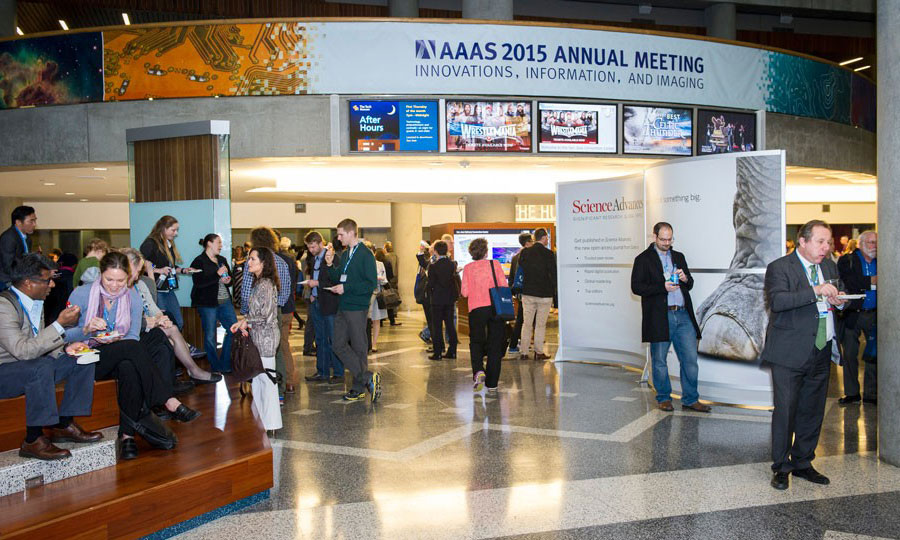
Science Groups: Federal Travel Restrictions Raise Major Concerns
More than 100 associations in the engineering, technology, and scientific spaces—led by the American Association for the Advancement of Science—have asked members of Congress to better balance cost concerns with the benefits of conferences for the scientific community at large.
Federal scientists, who have long represented the bread and butter of many scientific organizations, have been conspicuously missing from events in recent years, thanks in large part to the high-profile federal travel restrictions that government employees have faced.
The scientific community wants that to change.
In a letter sent last month to members of Congress, the American Association for the Advancement of Science (AAAS), with the support of more than 100 other associations, asked legislators to be mindful of the effects that the Office of Management and Budget’s (OMB) 2012 guidelines on conference spending have had, both on the sharing of scientific knowledge and through the increased costs that added bureaucracy creates.
“Current policies are reducing government scientists’ and engineers’ participation in scientific and technical conferences while the administrative cost of overseeing these activities has increased significantly,” the letter, dated April 21, states [PDF]. “In particular, government scientists and engineers often wait many months to receive approval to participate in conferences, sometimes obtaining it just days before a conference.”
The groups cited a Government Accountability Office report [PDF], which highlighted the additional costs that a lengthy decision-making process creates. They also pointed to two recent Washington Post stories that touch on two shades of the conference issue: One, that scientists often face the brunt of the pain when federal employees are forced to stay home; and two, that the travel restrictions are creating additional costs for the government, due to the long approval process and to the creation of new systems to manage approvals.
(The latter argument appears to be winning hearts and minds; last week, the Office of Personnel Management announced it would take a step back from doing conference reviews for agencies.)
In comments about the letter, AAAS Director of Meetings and Public Engagement Tiffany Lohwater said that meetings represent a different need in the scientific community than in other industries.
“Science and technology conferences provide undergraduate and graduate students with important opportunities to present their work in a professional setting,” Lohwater said in a news release. “These events also allow federal researchers and program managers an opportunity to recruit prospective researchers and perform crucial program oversight.”
The AAAS 2015 Annual Meeting. (Handout photo)






Comments